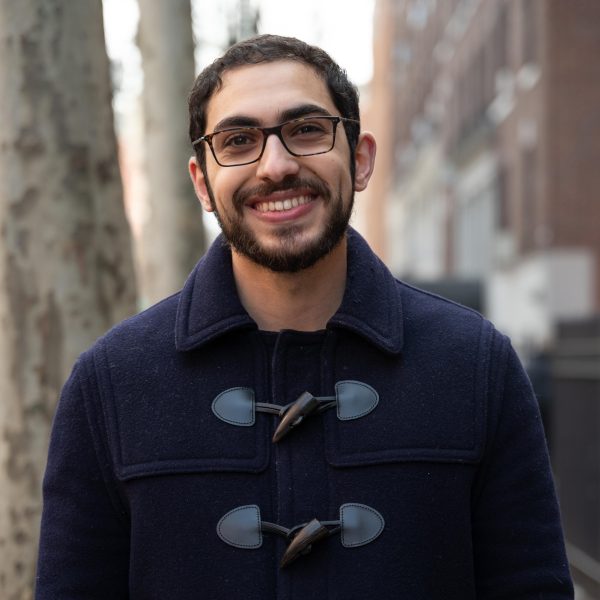The Soapbox: Tension in Palestine, Indigenous representation in Australia, migrant housing in the UK
The Soapbox is a weekly column by WSN covering major news developments at NYU’s campuses and study away sites abroad. Global consciousness for a global university.
The Soapbox is a weekly news column rounding up stories worth reading for a global university. (Staff Illustration by Susan Behrends Valenzuela)
April 7, 2023
In occupied Palestine, an Israeli military raid condemned by Arab states
Dozens of armed Israeli officers raided Al-Aqsa Mosque in east Jerusalem on Tuesday and Wednesday during the Muslim month of Ramadan, injuring at least 14 Palestinians and arresting hundreds more.
Israeli officials said that units were forced to enter the mosque after “masked agitators” barricaded themselves in the holy space. The officials claimed that they were violating an agreement that stated worshippers would not be allowed to pray overnight, according to The Guardian. The incident caused protests to erupt in Beit Ummar, a town in the occupied West Bank, with demonstrators throwing rocks and firing weapons at Israeli soldiers.
Following the raid at the mosque, between five and nine rockets were fired into southern Israel from the Gaza Strip on Thursday morning. Militants in Lebanon also responded, launching 34 rockets across the Israeli border, 25 of which were shot down by Israel’s aerial defense system, and five of which struck Israeli territory. No casualties were reported in either attack.
The Arab League, a regional organization of 22 Arab states — as well as Jordan, Egypt and Palestinian officials — responded to the military raid in an emergency meeting on Wednesday. Saudi Arabia and Qatar also condemned the attack, calling it “blatant storming” that undermined ongoing peace efforts between the nations.
Ahmed Aboul Gheit, the Arab League’s secretary general, said the escalation of violence in east Jerusalem is another example of the Israeli government’s “extremist approaches.” After facing backlash for the attack, Israeli prime minister Benjamin Netanyahu said that Israel is working to placate the situation.
“Israel is committed to maintaining freedom of worship, free access to all religions and the status quo, and will not allow violent extremists to change that,” Netanyahu said in a statement, according to Middle East Eye.
In the United Kingdom, government houses asylum seekers on a boat
The British government announced on Wednesday that it would house around 500 of the country’s asylum seekers on a large barge docked off the south coast of England. The decision serves as part of the government’s broader effort to restrict migration across the English Channel and reduce the financial burden of accommodating migrants in hotels.
Last month, Prime Minister Rishi Sunak pledged to cease boat arrivals after proposing a law that would bar the entry of asylum seekers across the channel. Opponents claim this would criminalize the efforts of refugees. Sunak’s plan to stop illegal migration to the country comes after the number of migrants crossing the channel increased to over 45,000 people over the last two years, according to Reuters.
The U.K.’s Home Office, the state department tasked with immigration and security issues, said that the vessel, dubbed the Bibby Stockholm, would be used to “reduce the unsustainable pressure” on the country’s asylum system. The housing plan is also meant to cut hotel bills that have cost British taxpayers 2.3 billion pounds a year — migrants to the U.K. have often been housed in government-paid hotels. Immigration Minister Robert Jenrick claims the costs are a result of “unnecessary and dangerous journeys.”
Steve Valdez-Symonds, the refugee and migrants director for Amnesty International U.K., said that confining hundreds of people in isolation is a “gross mismanagement of the asylum system.” The government’s decision also received backlash from other human rights groups, with some calling the barge a “cruel place” to house refugees.
“People seeking asylum need stability, to be able to maintain contact with their loved ones and to feel safe,” Christina Marriott, from the British Red Cross, said to The Guardian. “Docked barges, which are isolated from the wider community, do not offer the supportive environment that people coping with the trauma of having to flee their homes need.”
In Australia, the conservative party opposes Indigenous representation
Australia’s conservative Liberal Party announced its opposition to the government’s referendum to include more Indigenous representation in parliament on Wednesday, worrying proponents of the campaign.
Peter Dutton, the opposition leader, pledged to campaign against the referendum, and proposed “symbolic recognition” of Indigenous people in the constitution — perhaps in the form of a constitutional preamble — as opposed to granting them a recognized voice in parliament. Indigenous campaigners have rejected such proposals in the past, including in the Uluru Statement from the Heart — a 2017 petition by Indigenous leaders that called for legislative representation.
The proposal — which has been championed by Anthony Albanese, the Australian prime minister, since his election last May — would create an elected group in charge of advocating Indigenous interests to the government. However, the group would not have the right to vote on laws or veto legislation. According to a poll of 4,756 voters in The Australian, 54% supported the proposal, while 38% stood in opposition.
Dutton, in particular, rejected Albanese’s plan to create a nationally recognized Indigenous body represented by Canberra, the country’s capital, and instead advocated for regional and local representation. He argued that granting Australia’s Indigenous population a nationally recognized voice would be divisive, and that it wasn’t in the country’s best interest. Albanese claimed that the Liberal Party’s opposition lessened the likelihood of constitutional change and expressed disappointment in Dutton’s stance.
“It’s not about me or Peter Dutton or any other politician,” Albanese told the Associated Press.
“It’s about Australia, how we see ourselves, whether we give respect and recognise the fact we share this great island continent of ours with the oldest continuing culture on Earth and whether we have a process where we listen — we give a voice to — Indigenous Australians.”
Contact Yezen Saadah at [email protected].

























































































































































